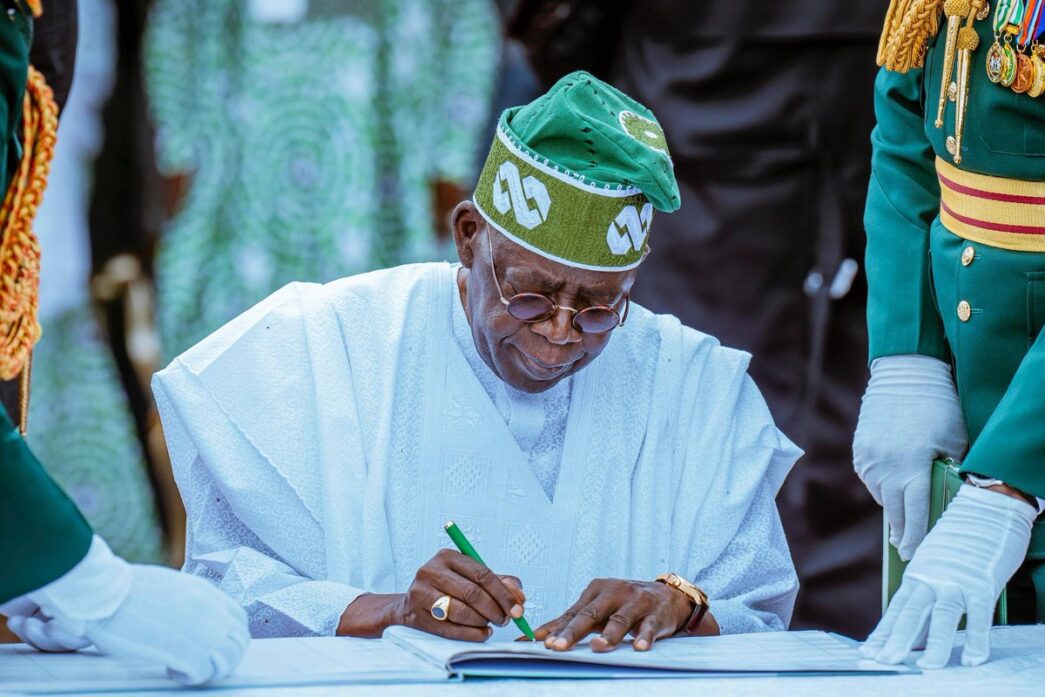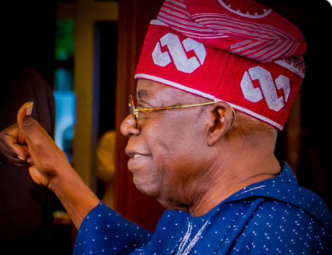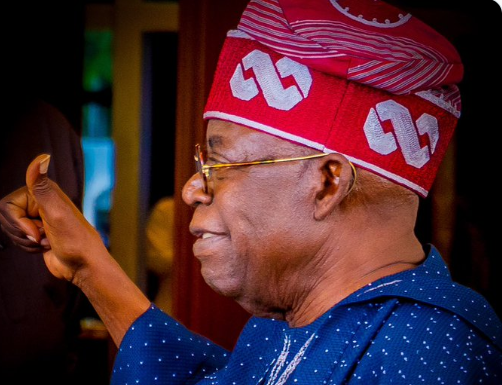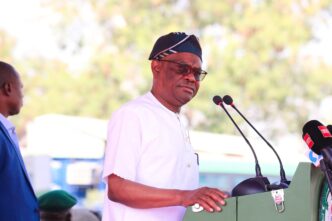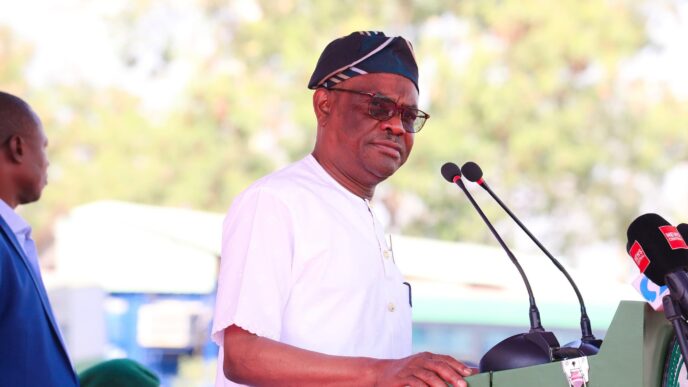Nowadays not a single day passes without a statement coming mainly from northern political figures and commentators complaining about how President Bola Ahmed Tinubu is short changing the Northern region on project allocation, appointments, political marginalisation and policy direction of his administration.
Senator Ali Ndume representing Borno South has been the most strident and eloquent on this subject with his presentation of unimpeachable comparative facts and figures on projects the Tinubu administration had embarked in the southern part of the country, particularly the South Western region where the president comes from vis-à-vis the North. He had also forwarded a list of appointments showing how the South Western part of the country had been unfairly favoured against other parts of the country which goes against the principle of federal character in appointments and representation.
Senator Ndume is not alone in this northern crusade. Recently Senators and Representatives from the North Eastern geopolitical region of the country addressed the media on the subject of allocation of agricultural projects in the country, which left out the entire six states of the region. For a region which is the largest in landmass and which is renowned for massive agricultural and livestock production, this oversight can only be deliberate and underscores the Tinubu administration’s policy of not only the North East but the North as a whole, said the North East legislators.
The feeling of unfairness by the Tinubu administration is the trending topic across the entire north in informal conversations among classes of people and in formal occasions involving the northern intelligentsia. There is an unmistakeable feeling that President Tinubu’s unfair treatment of the North amounts to a betrayal of trust and non-recognition of the massive votes (about 60 per cent of the total tally) that the region gave him to enable his victory at the 2023 elections.
Advertisement
But while the north is griping about what it regards as undeserving unfairness at the hands of the president, there are salient factors we should not gloss over on the subject.
How much of the unfairness against the north can be attributed to President Tinubu policies? Is the president the only source of the North’s misfortunes or are there other contributory sources? Why is the North moaning about unfairness just two years into the Tinubu administration when northerners have been at the helm of affairs in the country for over 40 of the 65 years of the country’s independence? Why didn’t northerners who have ruled the country institute policies that would have provided the necessary props for a northern economic transformation all this while to compliments the region’s political dominance in the country?
A partial answer to these posers has been provided by political cartoonist, Bulama Bukarti in his caricature of northern political elite which appeared on the Weekend Trust Newspaper edition of the penultimate weekend. In it Bukarti showed several doors depicting the existential challenges of the region which needed to be addressed by the northern elites. These challenges included prevalent insecurity, poverty, education, the parlous state of northern economy and the issue of political power. In the caricature, northern elites were seen rushing towards the door marked ‘’Northern Coalition to take over power’’. None of the elite were seen paying as much attention to the other doors.
Advertisement
In many ways this has been the purpose and focus of northern political power control; seeking and exercising political power for its sake and not necessarily for the larger and more meaningful northern human development. In the over 40 years that northerners have held power in this country, trillions of funds have accrued to the 19 northern states enough to more than transform its land and peoples and Nigeria by extension into an industrial power. Many individual northerners have made money beyond their dreams and belief, but this had hardly trickled down to the northern masses to change their lives and the land for the better. Indeed ironically the more northern elites get into the political power loop the more the more the north lost its modest economic and social foundation.
The underlying reason for the paradox of northern political power and regression in economic and social foundations are embedded in historical factors. At the dawn of the colonial era, the northern political and social structure was largely feudal; made up of the ruling aristocracy and a vast subservient peasant class who toiled as economic chattels and were socially beholden to the ruling class.
At the beginning of the colonial enterprise in Nigeria, the British subsumed the northern ruling aristocracy allowing them the powers to clamp the peasant class so as to ensure stability and continuity of the colonial administration.
Thus while other parts of the country there were little or no hindrance to the transforming economic and social changes that the colonial advent brought through education, in the north this was largely restricted. While in the southern part of the country, the middle class was growing and expanding with people getting more educated and being absorbed into the growing Nigerian economy as Engineers, Technicians, Doctors, Administrators, Traders, the northern ruling aristocracy contrived to severely restrict the similar expansion of northern peasantry into the northern middle class.
Advertisement
The template for the restricted human capital development in the north worked so successfully during the colonial times that at independence in 1960 while there were hundreds of schools and institutions in the south, there were less than fifty such schools in the north. While in the south there were hundreds of lawyers, engineers, technicians etc the north was grossly deficit in these areas. This pattern of deliberate human underdevelopment put the north at a disadvantage in critical sectors of Nigerian economic and social life which exist till today.
At independence when northerners led the government of Nigeria, they realise this factor and tried to introduce policies and measures to remedy the situation in the north. But it was too late because although northerners held political power in the country, there were not enough northern middle class to complement northern political power control in the country.
The coming to power of President Tinubu was not just power shift to the south, more significantly it represented the coming of the south west into the centre of Nigerian politics. Before then the south west had been content to play the opposition role in the country. Now that that the south west had morphed fully into the centre of Nigerian politics, it should be expected that they will bring in the full complement of the south western middle class into the available spaces they can find or create in the Nigerian political centre they now occupy through President Tinubu.
The North should also know that the south west will not leave the Nigerian political centre anytime soon and will ruthlessly restructure the Nigerian political space to ensure total dominance and control in the coming years. And what the north should also consider is that much of the political restructuring will come at the expense of the north.
Advertisement
The reality that the north should face is not just about the political power that has now being ceded to President Tinubu who is ruthlessly determined to restructure the Nigerian political economy to the advantage of where he hails from. What the north should do more importantly is to own up to the fact that the fault does not necessarily lie with President Tinubu, but more within. Organizing to retake power without collectively facing up to and resolving the massive visible weaknesses and cracks prevalent in the north would yield little even if the north succeeds in its bid.
President Tinubu has demonstrated by his policies how to use political power to advance group political and economic interests. This may look discomforting to others but in the context of Nigerian politics and its exclusivist trajectory this is the reality. Northern elites who have exercised political power in the country but did little to advance the progress of their region should learn applicable lessons from that.
Advertisement
Gadu can be reached via [email protected] and 08035355706 (Texts only)
Advertisement
Views expressed by contributors are strictly personal and not of TheCable.


